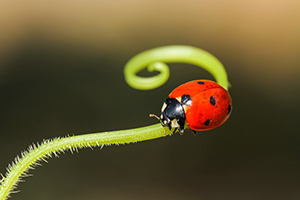

Hedgehogs, horseflies and horticultural oil

The UK-wide ban on the use of slug pellets
containing metaldehyde comes into effect
on 31st March, 2022.
The ban has been brought in after scientific
evidence and advice from the UK Expert
Committee on Pesticides (ECP) and the
Scientific evidence points to the risk that
metaldehyde-based pest control has on
wildlife, especially mammals and birds.
Alternative methods to try for the garden:
this article has mentioned only a few
available from (among other places) the
websites of: garden organic; idverde;
pesticide action network UK; and rspb
Make the change in time for March 2022
Pesticides have one job: to kill. The problem is, they don’t know how to stop killing and the chemicals used can seep into our ground water and even lead to changes in the atmosphere. And that’s not to mention the pollution produced by manufacturing them. Metaldehyde-based pest controls are no longer available for sale and will be banned in March 2022.
Fortunately, there are many paths available for those who wish to maintain a vibrant, healthy garden free from harmful chemicals. Here are just three of those paths.
Befriend the predators
Many garden pests can be kept under control by inviting their natural predators into your garden. Aphids, for example, can be kept under control by ladybirds which, in turn, love nettles. Hoverflies also prey on common pests. These friendly little flies have short tongues so open flowers like daisies, which have easily accessible pollen and nectar, are perfect for them.
We all love seeing hedgehogs in our gardens and hedgehogs love feasting on slugs. Adding some hedgehog-friendly elements to your garden, like a shelter, is a great way to invite them over.
Companions and sacrifices
Planting ‘companion’ and ‘sacrifice’ plants among your other plants can attract beneficial insects and repel pests or lure them away. Chives, onions and garlic are reported to repel many insects, while planting lettuce on the fringe of a vegetable patch can catch the slugs before they destroy the plants you want to harvest.
You can also break the cycle of reinfection at the end of the season by removing any infected leaves or fruit to stop them contaminating next year’s crop.

Death to pests
Anyone wanting to take the elimination of garden pests into their own hands can consider using sticky traps or pheromone traps. While these traps won’t kill large numbers, they can prevent the pest population from taking hold. Another option is horticultural oil which can be sprayed directly onto insects to smother them while leaving beneficial insects, bees and birds unscathed.
A popular way of repelling slugs is to scatter crushed eggshells or coffee grounds around plants as these will irritate the slug and will naturally degrade into the soil. Copper can also repel slugs, be it coins, stripped electrical wire or copper tape. Salt, on the other hand, is not recommended unless you’re growing plants that thrive in salty soil.
Genevieve Silk